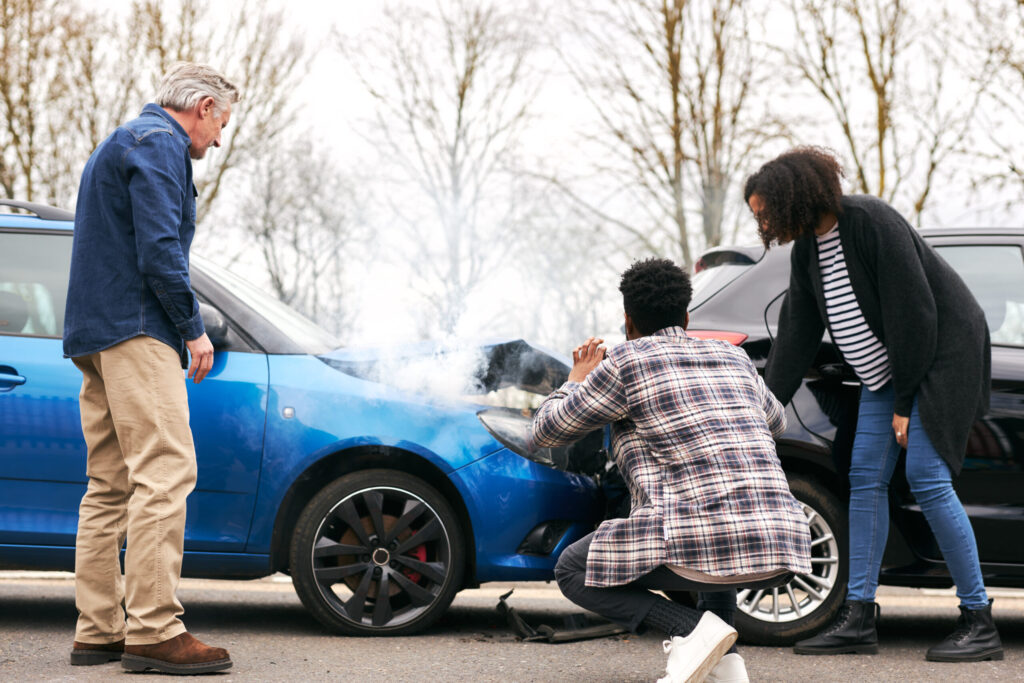Experiencing a Car Accident: A Guide on What To Do Next
An unforeseen car accident can lead to a whirlwind of stress and confusion. Knowing the crucial steps to take right after the incident can significantly smooth out the subsequent processes of recovery and compensation. Whether it’s a minor fender bender or a more serious collision, being prepared is key. This comprehensive guide will walk you through the procedures that should be followed after an accident. Keep reading to ensure you’re equipped with the knowledge to handle such unexpected events confidently.
Immediate Actions to Take Following a Car Accident

When you find yourself in the aftermath of a car accident, your immediate priority should be safety. Check for any injuries and move to a safe location if you’re in harm’s way, but stay near the accident scene. Turn on your vehicle’s hazard lights to alert other drivers and prevent further accidents. If injuries are involved, call 911 right away—emergency medical care always takes precedence.
Once you’ve ascertained everyone’s safety, it’s crucial to notify the police. A police report will play an instrumental role when dealing with insurance claims and legal matters. While waiting for law enforcement, minimize interaction with other parties involved in the accident, as emotions can run high and may complicate the situation.
While it’s not always mandated, documenting the scene can be extremely helpful later on. Take photos of the vehicles, the surrounding area, and any relevant traffic signs or signals. This visual evidence will complement the written police report and could provide clarity during the investigation of the accident’s cause.
Navigating Insurance Claims After a Traffic Collision
Dealing with insurance can be one of the most daunting aspects of a car accident. Time is of the essence, so notify your insurance company as soon as possible to start the claims process. You’ll need to provide them with all the information gathered earlier, including the accident report number as supplied by the police.
An experienced insurance agency can be an invaluable ally during this time. They will help you understand your insurance policy, what it covers, and how to file your claim effectively. Transparency is key—don’t withhold information as this could void your claim or lead to legal consequences.
It’s important to follow your insurance provider’s guidance on getting your vehicle appraised and repaired. They may have preferred providers or specific processes you need to follow for compensation. Engaging with multiple quotes is a good practice and can ensure that you’re getting fair market value for any repairs.
Seeking Medical Attention and Legal Consultation
Even if you believe you weren’t injured, it’s imperative to get a medical evaluation after an accident. Some injuries, like whiplash or concussion, may not be immediately noticeable. A healthcare professional can provide a thorough assessment and document any injuries, which might be necessary for potential insurance claims or litigation.
Medical documentation also plays a critical role in legal proceedings. If you decide to pursue legal action, or if the other party does, having a detailed record of any medical assistance received following the accident will strengthen your case. It’s often necessary to award compensation for medical expenses.
Repairing your Vehicle and Managing Transportation Needs

The visible reminder of a car accident is your damaged vehicle. Once the initial dust has settled, focus on getting estimates for repairs. If your car is not drivable, you’ll likely need a tow. Make sure to verify whether towing and rental car costs are covered by your insurance policy to avoid any unexpected expenses.
Choosing a reliable auto repair shop is essential. Conduct research or ask for recommendations to find a trustworthy mechanic. For professional and high-quality repair work, consider reaching out to establishments offering auto repair services that are experienced in dealing with post-accident restorations. Their knowledge can greatly influence the quality and speed of your vehicle’s road to recovery.
Managing transportation while your vehicle is under repair is another challenge. Explore options provided by your insurance, including a rental car or ride-sharing service credits. If these aren’t available, you may need to rely on public transport or carpooling as temporary solutions.
Overall, the aftermath of a car accident can lead to a complex maze of tasks that include ensuring safety, collecting information, and dealing with legal and insurance procedures. By following these structured steps, you can navigate the aftermath of a traffic collision with a clear head and a solid plan of action. Remember that your well-being and legal rights are paramount throughout this process.

